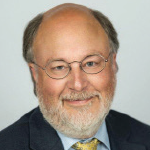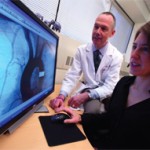With these challenges in mind, I view establishing a framework and pathway for our transition to the future as job No. 1 for the organization. We have a new strategic plan that is designed to help the ACR move on this course. A major tenet of this plan is that we will function as a data-driven organization.
Certainly, the ACR’s RISE Registry is providing a huge quantity of patient care data that can serve to document the high-value care provided by rheumatologists and help improve our quality of care. Participation in RISE furthers these goals at the same time that it provides significant benefits to the individual practice.
Similarly, new IT infrastructure being built by the ACR will help improve needs assessment and the delivery of specific benefits to individual members. Using data-driven approaches will also require increased utilization of defined metrics to measure impact and success.
A Growing Community
As I look to a new year as ACR president, the successful meeting in the warm sea breeze of San Diego served to remind me of the many ways in which the ACR is meeting the needs of its members and the rheumatology community at large. This community is growing, and it was impressive to see the enthusiastic international presence at the Annual Meeting. New sessions this year, organized by AFLAR, APLAR, EULAR and PANLAR were well attended and brought valuable international experience and perspective to the meeting.
The success of our meeting underscores the importance of the ACR as a leader in education in rheumatology. Continued focus on the evolving needs of rheumatology providers and our patients will ensure ongoing success, even through stormy seas.
 David Daikh, MD, PhD, is the 81st president of the ACR. Dr. Daikh is professor of medicine at the University of California, San Francisco, where he serves as the director of the Rheumatology Fellowship Training Program and as chief of the Rheumatology Division at the SFVA Medical Center, where he directs the Arthritis and Rheumatology clinic.
David Daikh, MD, PhD, is the 81st president of the ACR. Dr. Daikh is professor of medicine at the University of California, San Francisco, where he serves as the director of the Rheumatology Fellowship Training Program and as chief of the Rheumatology Division at the SFVA Medical Center, where he directs the Arthritis and Rheumatology clinic.


